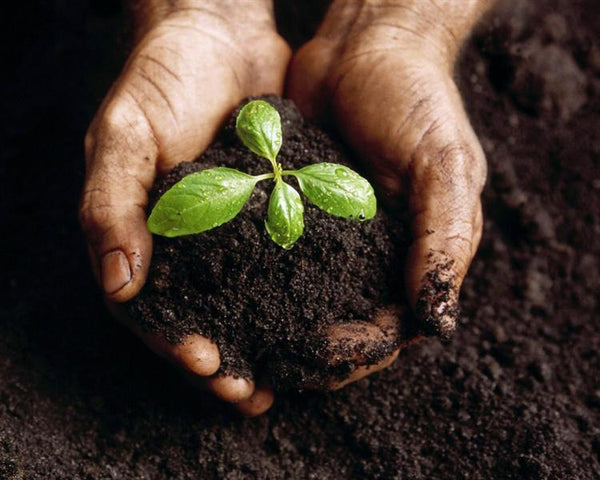Solar Power Blog

Composting Made Easy
All About Composting
There’s a movement among gardeners that is straying from complex fertilizers and dangerous chemical pesticides and towards the process of microbiology. One of the best ways to start making this healthy dirt for growing flowers, herbs, vegetables and fruits is through composting.
Basically, compost is organic matter that has been decomposed and recycled as a fertilizer and soil amendment. Gardeners don’t make compost; nature creates it! The process of composting at home requires creating a very specific environment. If you have never tried this before, it is well worth your time and financial investment to get this process started.
Composting is easy! This process involves collecting organic matter, known as green waste, and waiting for the materials to break down into rich soil. Because the soil (also called humus) is full of the microbes and nutrients that plants need to grow healthy and strong, landscapers, gardeners, and farmers favor compost!
The three basic things to consider when making compost are choosing a location (where you plan to put your composting materials), finding a balance of air and moisture, and determining what materials are best to put in the location or compost can.
Location
Having a place for your composting pile that is not too close to the house, but close enough to the garden to transfer the soil is important if you are piling up materials in a heap. If you are using a composting can, this is not such an issue because the container will keep the materials in a closed space.
There are many different types of containers for composting, and they range from wooden shipping pallets in a square to huge tumblers. The basic difference between the tumblers and the bins is that with tumblers, you have a container that typically has a handle on the side to turn the barrel and get air into the materials. A bin is stationary and the materials must be turned using a shovel or pitchfork.
Air and Moisture
In order for the magic of composting to take place, materials added to the composting pile must have air and water. This creates an ideal environment for the materials to break down and decompose into nutrients that can be quickly eaten by plants.
Again, there needs to be a balance. Too much air and heat might dry out the materials so much that they stop breaking down and the microbes can’t multiply or go dormant. Conversely, too much moisture and cold causes a similar effect. The process of decomposition will slow down and it will take much longer to get usable compost.
The ideal environment for composting is warm and moist. This is much easier to achieve with a tumbler (as compared to a bin) because the tumbler keeps the materials warm and moist for you. All you have to do is turn the tumbler with the handle to get air circulating through the compost can.
Materials
Materials to put in the compost can, tumbler, or pile are everywhere. If you are new to composting, there have likely been many times you threw leftover vegetables, salad, banana peels, coffee grounds, tea bags, and spoiled fruit into your garbage can. Now, you have a place to put all those wonderful materials: your compost can.
Grass clippings, leaves, and other landscaping materials are also ideal for the compost bin or tumbler. The rule of thumb is that there should be more dry materials (dead leaves) than fresh green materials (leftover lettuce or kale from your salad plate). This keeps the nitrogen and carbon elements balanced in the compost as it decomposes, or “cooks.” Some models of tumblers offer two compartments so that fresh materials get added to one side while the other side finishes. This is helpful because it keeps one batch going while the other is ready to apply to the garden.
There are differing opinions about what you should not put into a compost can, but most gardeners agree that meats and fats should not be put into compost. Fats and meats take much longer to break down and also attract animals (both wild and domestic), which creates a new problem.
Conclusion
Composting is made easy by letting the process of decomposition take place in an ideal environment. The rewards of building healthy, rich soil will be obvious as soon as you apply your first finished compost to your flowers, garden, or lawn. The plants will be greener, grow stronger and larger, and be more resistant to plant diseases and pests.
Thanks for reading today’s post and we hope you’ll get started with composting, ASAP! For composting supplies and compost cans, check out our inventory!


Zachary Turlington says...
I understand composting!
On June 08, 2017